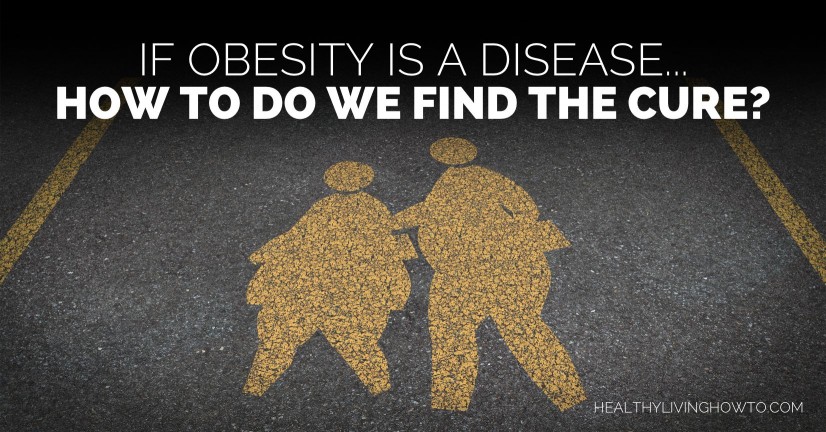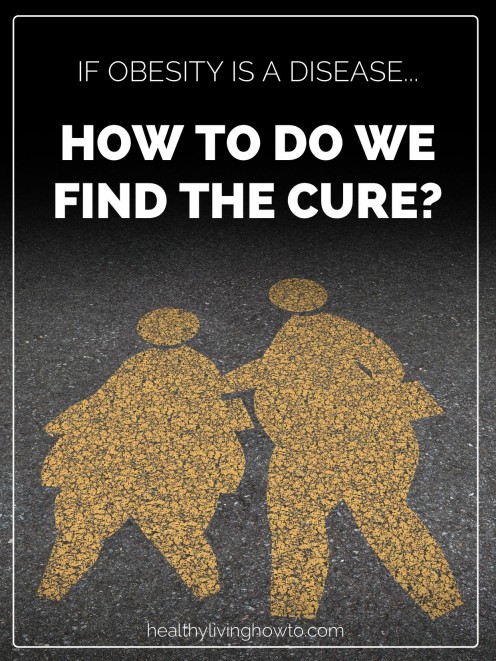It finally happened. Obesity is now classified as a disease. While there is enormous debate about this topic, I find myself on the fence, with both pros and cons in mind. The truth is, we do have a cure, not only for obesity, but for the other diseases related to it including diabetes, hypertension, heart disease, some forms of cancer, dementia and other degenerative diseases.
The cure won’t be found in a pill, and it’s as political as it is scientific. The cure isn’t as well understood by medical experts as it is fitness enthusiasts. We’re really at a cross-roads where the fitness industry holds in its hands the answers to the obesity epidemic, the medical industry holds the credentials for “treating” disease, the food industry has the influence on what consumers purchase, and the government has the ability to sway people’s perspectives of what’s required to optimize health and weight management.
Will these four groups come to an agreement about the right strategy to cure obesity?
Down With “All Foods in Moderation”
The Academy of Nutrition and Dietetics (formerly American Dietetics Association) has the most influence on dietary recommendations. Their primary sponsors include Coca-Cola, Hershey’s, General Mills, Kellogg’s, PepsiCo, SOYJOY and Unilever. With these food industry giants as their sponsors, what would you expect the AND to recommend for sound nutrition? “Everything in moderation” and “count your calories” will continue to be recommended, and taught to their up-and-coming Registered Dietitians.
In a culture where people are literally addicted to many of the foods those companies produce, it’s irresponsible of the AND to recommend eating them in moderation. It’s no different than if the National Heart, Lung, and Blood Institute (NHLBI) made public statements to smokers that they smoke in moderation, or alcoholics to limit their drinking to once or twice a week.
- If someone with lung cancer lights up a cigarette, his friends think “don’t be foolish, that cigarette will kill you.”
- If someone who’s obese declines dessert, his friends say “don’t be foolish, it won’t kill you.”
- 20% of heavy smokers develop lung cancer. 2/3 of the population is overweight or obese. The “all foods in moderation” paradigm must be put to rest.
Why is food different than smoking? Because we’ve been told that all foods are okay in moderation. They’re not.
Processed foods are filled with ingredients to make them more palatable and addicting. They have extra sugar (especially fructose), unnecessary fats, artificial flavors, colors and sweeteners, extra salt and all kinds of other junk. Meanwhile, the foods that provide health, and along with it, proper weight regulation, are available in the very same building.
Fresh meats, vegetables and fruit are all available for consumers. But until people clearly know the junk in the middle of the grocery store causes their disease, and the foods on the outskirts of the aisles can reverse or prevent it, their shopping habits won’t change.
Good nutrition leads to health and proper weight regulation. Good nutrition comes from eating fish, fowl, meat, dairy (in some cases), healthy fats, vegetables and some fruit. I’ve never met someone who needed to count his or her calories while eating real food (and using a few good supplements) to maintain health and proper weight regulation. I’ve also never met someone who successfully maintained a healthy weight by counting calories every day while eating processed foods and added sugars.
Stop Promoting the Calorie Balance Equation
Limiting the consumption of highly palatable processed foods is futile. So is expecting a patient to limit food intake by calorie counting. Low-calorie diets consistently fail at keeping patients on track with their weight loss goals and wreak havoc on patients’ metabolisms.
Should patients find the resolve to stay with a low-calorie diet, they’ll likely need their physician to prescribe other medications due to side effects from low-calorie diets. Patients will display signs of hypothyroidism, due to their metabolism adjusting to the limited calories.
They might need antidepressants, as the low-calorie diets deflate mood and energy levels. They may need to check into an eating disorder program, as the restrictive diet lends itself to bingeing.
The point is, we’re headed for trouble if the paradigm of what leads to weight loss doesn't change from eating fewer and burning more calories. You can’t argue with the research that shows low-carb, higher-protein diets are superior for weight loss. One study after another shows that when people limit their consumption of carbohydrates, especially processed carbs and sugar, they can eat as much as they’d like, and they lose more weight than when people follow a calorie-restricted, higher-carb diet. Unfortunately, the medical community hasn’t exposed enough to the supporting research, and instead relies on old dogma.
The greatest hurdle in changing the paradigm surrounding calorie counting is the Academy of Nutrition and Dietetics. The Academy has the most influence on dietary recommendations and licenses the nation’s Registered Dietitians. When you understand who sponsors this organization, you can see how difficult it will be to tell the public that processed foods are making them fat.
Proper nutrition begins with food quality, not calorie quantity.
Managing Disease Versus Optimizing Health
Today, most of what physicians are tasked to do is identify disease and prescribe treatment, which is often in the form of a pill. They are not taught about, nor are they given the time, to instruct patients on good nutrition. The exception to this is those doctors who take it upon themselves to understand functional medicine. These doctors are rarely found where insurance companies send patients. They often operate in private practices and many of their treatments are not covered by insurance. But they work. These are the kinds of healthcare practitioners I look to for my family’s healthcare needs.
For years, personal trainers focused strictly on exercise. In more recent years, the industry has started a shift. Nutrition is crucially important to getting clients the results they’re looking for. Much of the popularity in the Paleo diet has come through the personal training and Crossfit communities. Supplements have been used in fitness for decades, which play a role in closing nutritional gaps. Even direct-to-consumer lab testing is recommended more often by fitness professionals.
In my opinion, physicians would have the greatest chance of success if they worked with fitness professionals and non-conventional nutritionists. As patients become more healthy, the weight will come off.
Physicians and Nurses Must Lead by Example
Though no research has been done on female physicians, 44% of male doctors are overweight and 6% are obese. That means a patient has a one out of two chance of working with a doctor who hasn’t learned to manage his own weight to begin with. Nurses tend to fare a little worse, with 28% of female nurses being overweight and 11% being obese.[1] Again, if it’s up to our medical professionals to be the resource for patients to maintain a healthy weight, they must set the example themselves.
Drug Therapy Should be a Last Resort
Reversing or curing obesity, with rare exceptions, does not require drug therapy. Of course, now that obesity is an official disease, you can expect more drugs to hit the market targeting obesity. Using drug therapies to “cure” obesity would be like putting black paper over your dashboard when your check engine light turns on. It hardly solves the problem, and only treats the symptom.
The factors that cause obesity also cause other health problems. Patients may need to use drugs to manage hypertension, blood sugar and lipid problems in the short-term, but if they’re properly guided toward good health and weight management habits, they shouldn’t need those therapies long-term.
Also, if drugs come out that allow help people lose weight while continuing to eat the same junk they do today, there’s bound to be a number of side effects.
The Government’s Role
Whew, this is a big one. The first version of the Dietary Guidelines for Americans was published on January 14, 1977[2] and was written with little scientific support for its recommendations. In the decades since, the same misinformation has been repeated and woven into how we view and choose food, and how the food industry spins its products to gain sales.
Michelle Obama’s Let’s Move campaign is based on eating less and moving more. It isn’t enough to dramatically change the health of the country. I don’t believe the government needs to interfere with people’s choices, but they do at least need to speak the truth if they’re going to talk about the subject (I know most people will roll their eyes at the notion).
Just as the AND is influenced by the food industry, the government is influenced by the food, agriculture and pharmaceutical industries, none of whom stand to gain from the habits people should make to lose weight and improve health.
Is There a Cure?
There is a cure for obesity. We’ve known what it is for decades, even centuries. In fact, here is a web of irony to think about.
William Banting was an obese Englishman who wrote a book called the Letter on Corpulence, Addressed to the Public in 1863. He wrote if after finding enormous success in losing weight.[3] The booklet advocated a low-carbohydrate diet, and had a strong following of success stories at the time, though he was ridiculed by the medical community. Today, the top level of sponsorship for the Academy of Nutrition and Dietetics is called the Banting Level. Sponsors at this level contribute more than $1 million a year to the AND. The sponsors who occupy that level of sponsorship, and the next level down, include those mentioned above, Coca-Cola, Hershey’s, General Mills, Kellogg’s, PepsiCo, SOYJOY and Unilever. These sugary, high-starch foods are made of the very ingredients Banting knew was the cause of obesity in the 1800's.
We have the cure to obesity. Who knows how long it will be before the most influential organizations acknowledge it.

